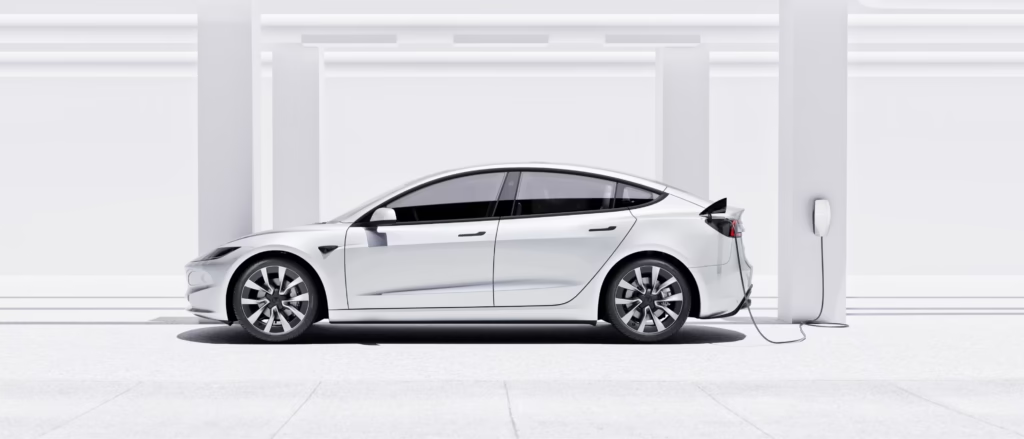The “future of electric vehicles in India” is one of transformation, innovation, and sustainability. In India, as the nation progresses towards better energy sources and works towards reduction of carbon footprints, electric vehicles (EVs) are expected to be one of the game changers in India’s transportation landscape. From the metros to the interiors of the countryside, the adoption of EVs among the people is likely to change how they travel in India and will also help the world combat climate change and Assist the economy of the country.
Table of Contents

India’s Growing EV Market
Several factors such as government policies, environmental issues, and the need for cheaper transportation as well as energy efficient vehicles have spurred up the growth of the EV market in India. In the last few years, India has made efforts towards electric mobility, seeking to ensure that 30% of the vehicles-on-road would be electric vehicles by 2030.
Steps taken by the Indian government to promote EVs can be seen through the lens of policies such as the Faster Adoption and Manufacturing of Hybrid & Electric Vehicles (FAME) scheme. This program provides bonuses and incentives to individuals and manufacturers for the acquisition of electric vehicles, construction of charging infrastructure, and localization of the production of electric vehicle parts such as batteries or motors. Other states such as Delhi, Maharashtra and Tamil Nadu have also formulated their own policies in order to encourage the growth of electric vehicles which adds to the “future of electric vehicles in India”.
Challenges to the Future of Electric Vehicles in India
1. Infrastructure Development
A significant hurdle that stands in the way of India’s EV future is the lack of adequate charging infrastructure. While metropolitan cities like Delhi, Mumbai, and Bengaluru are beginning to see more charging stations, most of rural, semi-urban India still needs the charging infrastructure to promote EV adoption. In the absence of presence of charging points, the EVs will have limited use only.
2. Cost of EVs
Compared to gasoline vehicles, electric vehicles come with a relatively higher cost for the consumers. The prices have been going down due to improvements in technology, though most Indian consumers do not consider purchasing an EV due to the high initial cost. Another factor that contributes to the total cost is the expense involved in importing batteries and other components of production which makes EVs manufactured in the country expensive.
3. Battery Supply Chain and Production
The battery forms the most essential part of the electric vehicle and its manufacturing requires materials like lithium, cobalt, and nickel. The country’s economy now depends on these imports which need to be controlled for the sake of efficiency and optimization of the supply chain of EV manufacturing. In order to strengthen the EV ecosystem in the country, establishing a local battery supply chain and engaging in battery manufacturing are imperative.
4. Awareness and Adoption
Many Indian consumers are still reticent to acquire EVs due to, in part, range anxiety (the lingering fear of running out of charge mid-journey) and conjectures about the electric vehicles’ capabilities. In order for such a perspective on “ future of electric vehicles in India” to flourish, such awareness campaigns regarding the advantages of using EVs and the reasons such as low emission levels, low usage expenses, and government support, should broaden their focus.
Opportunities for the Future of Electric Vehicles in India
Despite the challenges, there are numerous opportunities to boost the “future of electric vehicles in India.“
1. Advancements in Battery Technology
India is working to cut down on battery imports, researching and developing other types, for instance, solid-state batteries in the process. In these technological advances, batteries are less expensive to manufacture and weight more energy which would lessen the costs incurred for EV manufacturing. The motivation behind India’s desire to achieve self-sufficiency in battery production is extremely important in enhancing the EV industry in the future.
2. Job Creation and Economic Growth
This transition to electric vehicles is bound to create good job opportunities in large numbers and in different fields. Jobs are expected in the plants that produce EVs, charging stations, and battery factories for engineers, technologists, and shop hands. As regards the government’s policy goal to increase domestic assembly of EV components, it is likely to enhance the local market and aid India in its quest to be an EV manufacturing hub.
3. Environmental Benefits
The one notion which drives the growth of ‘future of electric vehicles in India’ is the environment. With the ever increasing concerns over air and the threat of climate change, electric vehicles are the accurate remedy to fuel vehicles. The increasing rate of adoption of the EV will also cut on the emission levels and by extension, improve the air pollution problems in the country. This will primarily be of benefit in the large cities like New Delhi that is often under threat of terrible levels of pollution.
Similarly, the increasing adoption of electric vehicles in India is in complete harmony with the country’s renewable energy agenda, be it solar or wind energy. Using green energy to charge electric vehicles can lower the country’s reliance on fossil fuel and provide a more environmentally-friendly transport system.
Electric Vehicles in Public Transport
The ‘future of electric vehicles in India’ has great promise in the field of public transportation. The e-bus, e-autos and even e-delivery vans per se can help reduce emissions and operational cost. Some of the cities have already started replacing their heritage buses with electric-powered ones and the electric rickshaws have been gaining traction in metropolitan areas.
Large-scale development of the electric public transport systems could transform the way intercity travel is done on a daily basis by millions of Indians, thus furthering the cause of environmental and economic efficiency.
Conclusion: A Promising Future
The ‘future of electric vehicles in India’ is bright but needs consistently coordinated efforts from the government, industry and consumers. With the issues of infrastructure, cost, and awareness being addressed and building on the advantages of the technology and the jobs created, India has the capability of being at the forefront of the booming electric vehicle market.
As the country progresses towards cleaner forms, electric vehicles are going to have a lot of effect on the transportation system of India in times to come. The journey is long, but the path towards an electric powered tomorrow has started.

